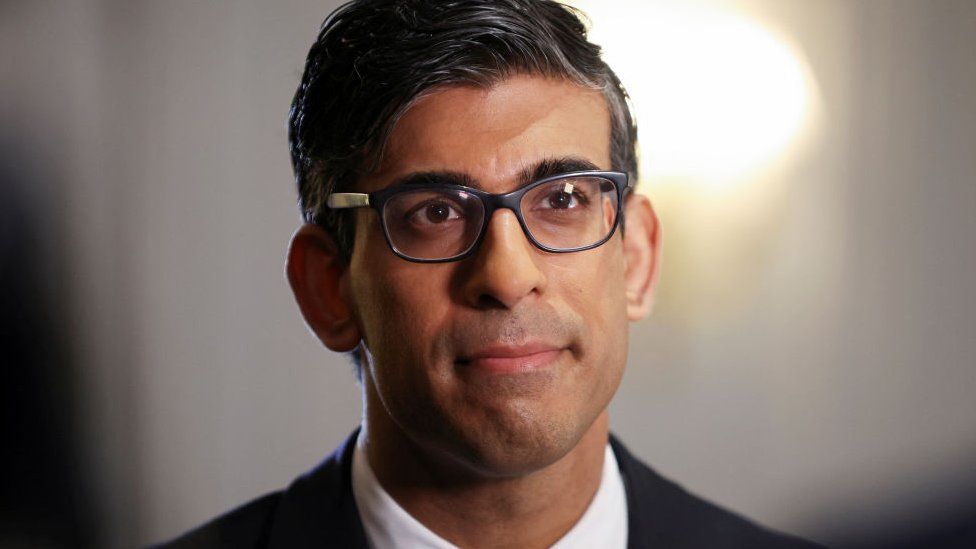ARTICLE AD BOX
 Image source, Getty Images
Image source, Getty Images
By Chris Mason
Political editor, BBC News
Sleaze. It's a big word, and it gets lobbed around at Westminster rather a lot.
It tends to refer to alleged wrongdoing, often financial or moral.
The thing is, it can take in everything from an MP who ends up in jail - think the MPs' expenses scandal just for starters - to alleged procedural or administrative cock-ups that are soon forgotten.
On the Richter scale of these things, it feels like a rather minor tremor. Think a few loose roof tiles rather than anything much more.
There are two things at the crux of this.
The first is what Rishi Sunak chose to say, and, crucially, not to say, in front of what is known as the Liaison Committee of MPs at the end of last month.
He was asked explicitly, by the Labour MP Catherine McKinnell, "there is nothing as prime minister you wish to declare?" in reference to a childcare company his wife Akshata Murty has shares in which looks likely to benefit from this spring's Budget.
"All of my disclosures are declared in the normal way," Mr Sunak replied.
But in announcing his investigation, the website of the standards commissioner, Daniel Greenberg, pointed to a particular rule in the code of conduct of MPs, stating that "members must always be open and frank in declaring any relevant interest in any proceeding of the House or its Committees, and in any communications with ministers, members, public officials or public office holders".
The implication being that the prime minister should have referred explicitly to his wife's shareholding in front of the committee.
The added twist here, a symptom of the chaos at Westminster in the last year or so, is the Register of Ministerial Interests, which has conventionally been updated around every six months, hasn't seen the light of day since last May.
So when the prime minister said to the Liaison Committee, as he did, that his "disclosures are declared in the normal way" they haven't actually been published.
He has said he has informed officials in the Cabinet Office, but whatever he told them, and they told him about whether it should be explicitly registered, has not been publicly declared.
Incidentally, Labour leader Sir Keir Starmer found himself in a run-in with the parliamentary commissioner for standards last summer.
It was Mr Greenberg's predecessor then, Kathryn Stone.
She found he had breached the MPs' Code of Conduct eight times, describing the breaches as "minor and/or inadvertent" over declarations that were late.
Sir Keir apologised. The row very quickly blew over.
The prime minister will hope his encounter with Mr Greenberg is also quickly forgotten about, although it will increase the scrutiny of Ms Murty's other business interests and the declarations relating to them.
It is a reminder for Downing Street of another two things: the inevitable stories, borne of intrigue and fascination, relating to the Sunaks' vast wealth, of which this is the latest.
And that if you say on your first day in the job of prime minister, almost six months ago now, that your government will be defined by "integrity, professionalism and accountability at every level", you bet people will hold you to it.

 1 year ago
31
1 year ago
31








 English (US) ·
English (US) ·